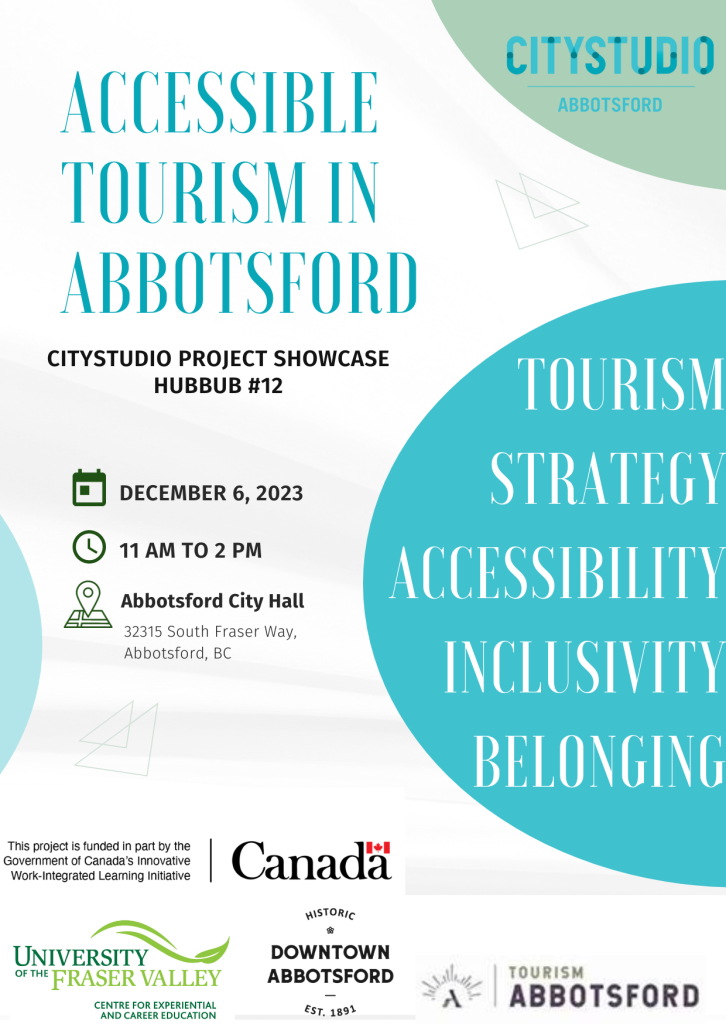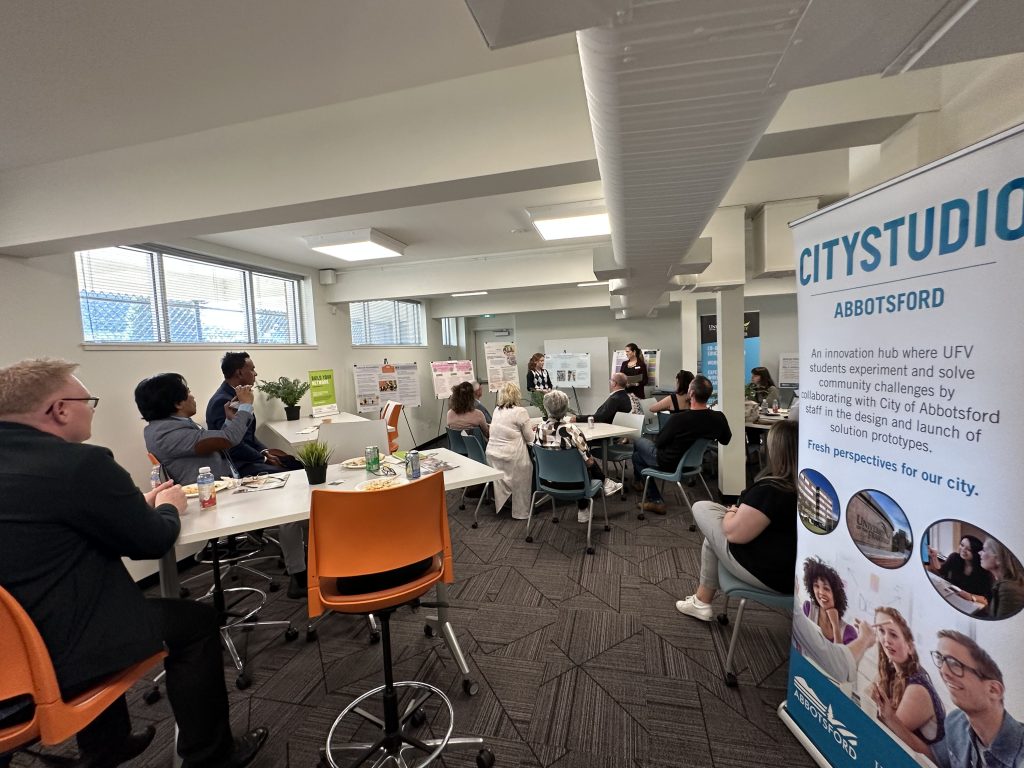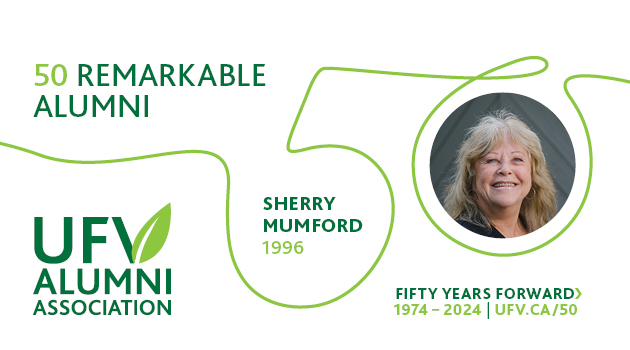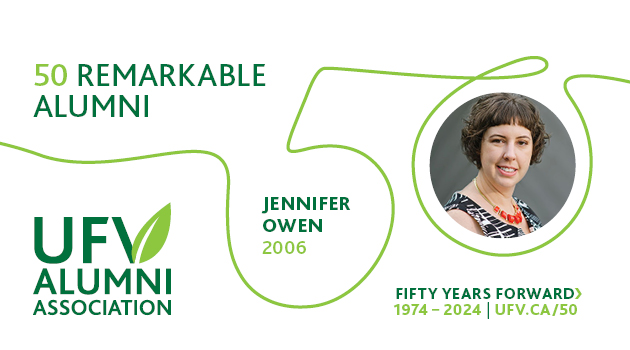UFV students gain valuable experience through two federally funded work-integrated learning projects
 UFV’s Centre for Experiential and Career Education is celebrating the completion of a community engagement project offering work-integrated learning opportunities to more than 250 UFV students.
UFV’s Centre for Experiential and Career Education is celebrating the completion of a community engagement project offering work-integrated learning opportunities to more than 250 UFV students.
Some of the projects will be showcased in a CityStudio Hubbub showcase event focused on Accessible Tourism in Abbotsford.
You can view the projects at the Hubbub showcase on Wednesday, Dec 6 from 11 am to 2 pm at Abbotsford City Hall.
This spring, UFV received more than $340,000 to support two overarching community engagement projects under the umbrella of work-integrated learning (WIL).
The project has been funded in part by the Government of Canada’s Innovative Work-Integrated Learning Initiative and CEWIL Canada’s iHUB.
“CEWIL Canada is pleased to support innovative WIL experiences for students at UFV, where students have been able to receive financial support and recognition for their WIL experience,” says Charlene Marion, Executive Director at CEWIL Canada. “Funds such as these aim to eliminate barriers to WIL and increase access for all post-secondary students.”
The first project — conducted in close collaboration with Tourism Abbotsford and the Abbotsford Downtown Business Association — focused on helping to develop a local accessible tourism strategy.
This summer, more than 80 domestic students from six different disciplines worked together with community stakeholders and subject matter experts to assess existing tourist destinations through the lens of accessibility. The group proposed sustainable strategies for Abbotsford to reach its full potential as an inclusive travel, recreation, and work destination. UFV also involved international students in the project through an alternate funding system, bringing the total participants to 125.
UFV hosted a project showcase in September, inviting community members to share ideas on building accessibility, and celebrate student success.
During the fall semester, students in 21 courses from 11 disciplines took part in the CEWIL Canada-funded projects.

In addition to continuing with work on accessible tourism, UFV launched History in the Making: Celebrating UFV’s 50th Anniversary, a multidisciplinary project that engages students in innovative collaborations to celebrate UFV’s 50th anniversary in the context of burgeoning economic development and vibrant cultural mosaic in the Fraser Valley.
The History in the Making project gives the students an opportunity to explore the history and legacy of UFV as a vibrant hub of civil society and cultivate a greater sense of belonging. Its multi-disciplinary framework allows for examining the historical, economic, social, and cultural impacts that the university has produced over time on the communities it serves.
The project will be conducted in partnership with multiple internal stakeholders whose mandate benefits the gaining of a broader and more in-depth knowledge of UFV’s internal transformations and its community-facing history, including Community Engagement, Institutional Research, and UFV International.
Three types of WIL will be utilized, including course-based, capstone, and practicum experience, allowing students to work directly with university staff and community members, and to cross-collaborate between various non-placement and placement WIL experiences.
“The CEWIL funding will help promote innovation in experiential learning, highlighting the value of a non-placement WIL in particular, by offering the direct benefits to students while addressing community needs,” says CECE experiential education coordinator Larissa Horne.
The project’s multi-disciplinary framework allows for examining the social, environmental, and cultural impacts that UFV produced over time on the communities it serves and on its own organizational culture and mandate.
Direct engagement with internal and external community partners through both projects will open the door to professional networking and further mentorship opportunities. The students will obtain a relevant skillset, including technical and transferable skills, and become more invested in community building with greater personal confidence and civic pride.
Candace Stewart-Smith, Director of UFV’s Centre for Experiential and Career Education, is excited about the potential that the CEWIL funding brings.
“CEWIL Canada’s iHub funding has been instrumental in raising the profile of Work-Integrated Learning at UFV. Faculty were able to envision and implement unique experiential learning opportunities in their courses to enable students’ direct engagement with issues of accessibility in communities, including our local community. The offer of stipends and additional resources reduced many of the barriers students face in engaging in such opportunities and ensured equitable access to learning,” she said.
Barb Roberts, Destination and Industry Development Manager for Tourism Abbotsford, is grateful for the insight that the partnership has produced so far.
“Tourism Abbotsford values our community partners and our collaboration with the University of the Fraser Valley. UFV is well known for developing strong partnerships and fostering long-lasting relationships throughout the whole community. Our partnership brought together innovative and creative solutions in finding success and happiness and creating strategic opportunities for our community, driving community spirit and engagement. It is such a great pleasure to work with UFV.”
Communications professor Paul Fontaine, whose advocacy writing class worked on the accessible tourism project this summer, said it was a very valuable experience for his students.
“I was very excited to get the opportunity to include my students in this project, whose aims were a great fit with the course outcomes. My students were also really engaged with the project, mainly because they felt that accessibility was an important goal for our community/region to strive towards. Some of my students had first-hand experience not feeling comfortable in spaces and felt a personal investment in making tourist spaces more accessible… I am energized by their efforts and am appreciative of the positive impact that the project has had on my class this term.”







